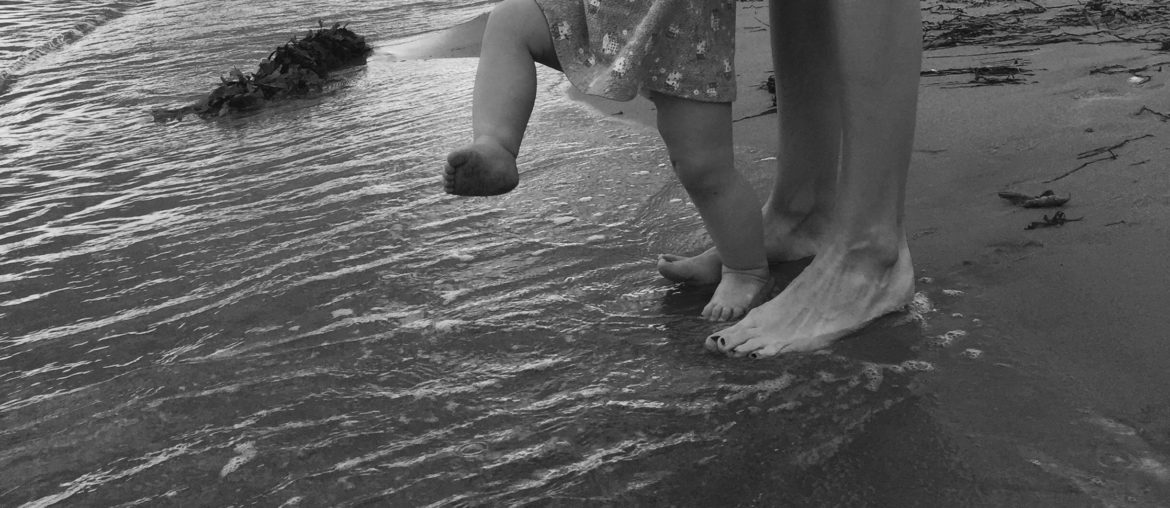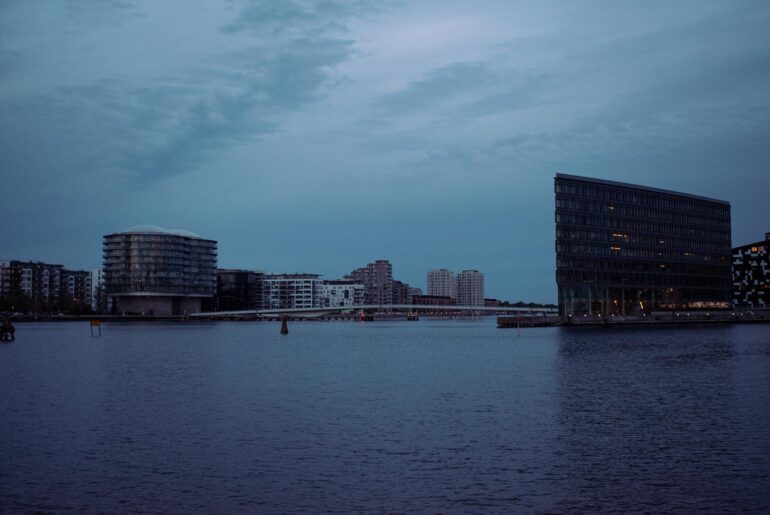Johanne is a Danish psychologist trained in behavioral methods and the co-founder of It's Complicated. She completed her education as a psychologist at the University of Copenhagen in 2013, with a master's degree and experience within the fields of narrative therapy, cognitive-behavioral therapy and acceptance and commitment therapy (ACT).
Last Updated on December 30, 2023 by It’s Complicated
I’ve wanted to speak with Amalie Vatne Brean since forever. Not only is she a warm and smart person I used to study with, she’s also a private practicing psychologist specialised in some of my favourite topics: motherhood and the excruciating loneliness, shame and anxiety that oftentimes follow the responsibilities of parenthood. And what’s more, she helps prepare future parents for the world awaiting them.
So, first things first. How was your interest in parent- and motherhood sparked, and when did you start gearing your work as a psychologist in that direction?
Amalie Vatne Brean: I guess I have to start off by admitting that my mother works as a psychologist in Norway, specialised in supporting pregnant women, their partners and new parents. It’s not a secret that she loves her work, so my interest was sparked long before I became a psychologist.
During my studies, I somehow always ended up being engaged in subjects like intersubjectivity, developmental psychology, gender, mind-body-challenges and relations. When I realised that pregnancy and motherhood combined all my favourite subjects in a unique way, I couldn’t hold back my fascination with pregnancy and motherhood. After that, I worked with pregnant women in my internship at the university, and ended up writing my master thesis on pregnancy.
Since then, I’ve just continued to look in that direction, even though I’ve worked with other psychological issues meanwhile.
Can you tell me about your workshops and how you work with new parents therapeutically?
Amalie Vatne Brean: Just before Corona shut everything down for a while, I started some workshops and groups for parents-to-be, with my colleague Anne Rom. They were (and are still) intended as a form of preparation for the time after birth, well aware that it’s impossible to completely prepare for the unknown. However, some of the preparation is to be prepared precisely for not knowing what awaits you.
We live in a culture where we are used to schedule, optimize, streamline and control everything. Parenthood? It’s luckily not 100% controllable. Already during pregnancy, our mind and body automatically starts to stir up our feelings and thoughts, and create a working space for the unknown future with our baby and partner. We become more sensitive, more “open” and vulnerable, so that we are able to tune into the newborn baby’s needs and speechless communication. (Yes, we see some of the same changes in partners as well!).
Our culture is by no means suited to take care of and appreciate those changes, so a lot of us judge the feelings of sensitivity as weakness, and try to hold on to the individualistic idea that what we conquer alone, is greater than what we achieve by reaching out to others.
In our workshops we try to establish a feeling of belonging – both to one’s own body, to one’s partner, to the group, and to human complexity, especially during pregnancy and parenthood, but also in general. We try to combine that with some concrete advice, knowledge and exercises. I will be on maternity leave for a while, but Anne will continue the workshops, and I’m eager to follow the development.
From the societal level, what conditions most urgently need to change to improve the experience of new parenthood?
Amalie Vatne Brean: Well, my “shortened” wish list would look like this: A stronger and more holistic support system for the whole family during pregnancy, birth and after birth, with health professionals who have knowledge of and respect for the potential mental challenges for both sexes and the child.
Easier access to professional support for all groups in society, included support groups, when facing mental health problems after birth. Better communication from the government and health institutions, that incorporates the partner as an important part of the family even before birth, and that treats the pregnant body as a complex entity of body and mind, and not just as a woman’s physical condition.
Finally, in a structural perspective, longer parental leave for both sexes, more flexible working hours and flexible organization by the employer, better quality in the institutions and better possibilities to stay home with ill children.
Sorry, that sounds like a lot, but it’s definitely a good investment – both humanly and economically speaking. After all, it’s the beginning of life we’re talking about.
What are the biggest challenges that new parents usually face?
Amalie Vatne Brean: Despite more concrete issues like troubles with breastfeeding, traumatic birth experiences and babies who don’t thrive, the biggest challenge would in my opinion be feelings of loneliness and shame, of “doing it wrong” and of not being “good enough”. We were never meant to raise children alone, in separate homes with Instagram as our only picture of parenthood.
From my perspective, this isolation, combined with a culture that doesn’t honour the values we need in parenthood, such as belongingness, vulnerability, feelings, bodily sensations, repetition and a slow pacing, makes the feelings worse. For a lot of women, it can feel like a prison to be kept away from everything they’ve strived for before parenthood, and for other women, it feels like torture to be forced back to work and away from their children. Many of us struggle with feelings of both: how do I keep my passions, work and/or my feeling of belongingness to the “outside world” intact, while at the same time giving my children a safe, healthy and happy life? It seems like no matter what one’s doing as a parent, it’s never good enough on one parameter or another.
And how do we cope? Supported by the culture, we make the problem “our own” and tell ourselves “I’m not enough, everyone else can juggle it all, and I’m the only one who’s feeling left out, thanks to my own incompetence”. When we don’t talk about, hear about or share these feelings, they only develop in one direction: they grow.
What’s your take on postpartum depression, and what preventive measures can be taken?
Amalie Vatne Brean: Postpartum depression is not someone’s fault. You never choose to be sad, and the most stupid advice I’ve ever heard health professionals give newborn parents is: “go home, wipe your sadness away and stay happy, cause your sadness destroys your baby”.
How are we ever going to feel good again after that advice? When becoming parents, we are, as I see it, emerged in a complex context of the past, our relations with our parents and everything we’ve experienced before parenthood, our current relations with our partners, family and friends, our own changing body, hidden “ideas” from the culture, and a huge amount of expectations and demands from society.
On top of that, we have our own “vulnerability” developing from the inside and out during pregnancy, our birth experience, our experiences after birth and our relation to the newborn baby. It’s in the mixture of all this that we, in my opinion, can find the roots of postpartum depression. This is not to be deterministic. We can definitely act on our sadness, but it’s a specific reaction in the specific individual, and we have to take that special context under a curious and compassionate examination, to understand how to help that particular parent. I don’t see it as a “new” phenomenon, but I do believe our culture, as described earlier, can enhance some of the negative reactions.
We have evidence of specific risk factors for developing post partum depression, and science shows that we can detect signs of possible depression already in the beginning of pregnancy. Being able to detect and follow up on these signs can be a very effective preventive measure. In that way, we can, for example, work with the parent and his/her life, his/her current and past relations, and specifically relation to the unborn baby.
What piece of advice do you give to most new parents?
Amalie Vatne Brean: Lower your shoulders and relax. The idea of a perfect parent is a culturally bound myth, it’s non-existent and, most importantly: it’s nothing to strive for. Our children are humans growing up among humans; they need humans as their role model, and not some perfect robot without sadness, temper and irritability. It’s through facing all kinds of emotions and challenges, together with a caregiver that shows us that she/he is there, that we learn about emotions and life. You were never expected to be picture perfect happy all day long. Parenthood stirs up all kind of feelings in all of us, and our job is to notice it, accept it and share it with people we trust, not to eliminate it. Research shows us, that it’s not how you feed or put your baby to sleep, and definitely not what baby gear you buy, that are important factors for your child’s development. So please scream f*** you to your inner tendency to compare yourself with others, and trust your gut feeling about your own child.
Both in Berlin, where I live, and in Copenhagen, where you live, the lockdowns have lifted, but the pandemic is still very much affecting parents around the world. Do you have any advice for parents who have to spend more time than usual with their kids?
Amalie Vatne Brean: We all react in different ways during social isolation with families. Some have more time on their hands, and live in areas with less infection, and may see this as a time to calm down and have extra time with their families. For others, it means having to juggle jobs, children and everything else in the same small living space. For some, friends and families get sick, or they will have to give birth without their partner because of restrictions. Maybe your time on parental leave feels waisted, because the friends, activities and support groups are lost because of the corona-restrictions?
In all of the different scenarios my advice would be to remember that as it might be terrifying, uncomfortable, sad or lonely, it’s most likely going to affect you much more than your baby. Your baby or child needs you, your warm body and your smile, and that’s it. So my advice is simple: How can you take care of yourself, if not all the time, then for 5 minutes? How can you pat yourself on your shoulder for doing as best as you can in a difficult time? How can you reach out and use phone, Skype, social media or whatever you prefer, to feel connected with people around you, despite the distance?
Most importantly; I would love to be able to lower the expectations that surrounds us at our workplace, social media and in the cultural in general, but I don’t know how. So how can we try to lower our own expectations instead? How can we try to remember that we’re all just trying our best, and that that’s all our children expect from us, as well?
In the end of an interview with a psychologist I admire, I usually make sure there’s a contact button, so that readers can easily reach out and ask a question or book a session. When I have chosen to omit this here, it’s because recently Amalie went on her second maternity leave. So while she’ll continue to gain the psychological and lived experience of parenthood, she is not taking on clients at the moment.
Advantages of Discovering Your Therapist via It’s Complicated
- No Setup Costs: Creating an account and reaching out to therapists is entirely cost-free.
- Transparent Pricing: You’ll only pay the session fee, with no concealed booking fees.
- Precise Search: Utilise our robust search tool to pinpoint therapists based on your specific preferences.
- Thorough Listings: Easily explore therapists categorised by their specialty, approach, location, and language.
It’s Complicated is a therapy platform that not only helps clients find their perfect therapist but also supports therapists in their craft of helping others. Featuring over 2,000 mental health professionals from 80+ countries, counselling is available in almost 100 languages, both online and in person. A GDPR-compliant video solution, encrypted messaging, and easy invoicing guarantee a private and seamless counselling experience for therapists and clients alike. If you are in a serious crisis and need urgent help, please use one of these resources instead.






Comments are closed.